HR outsourcing is a strategic move for many businesses seeking to streamline their operations, reduce costs, and focus on core activities. However, before you hand over critical HR functions to an external provider, it’s essential to understand the legal aspects of HR outsourcing to protect your business and ensure compliance. In this article, we’ll explore the key legal considerations every business must keep in mind when outsourcing HR functions.
1. The Legal Framework of HR Outsourcing: Key Considerations for Employers
When you decide to outsource HR functions legally, you must first understand the legal framework surrounding HR outsourcing. This includes both federal and provincial laws that regulate employment practices, privacy, and data protection.
For example, in Canada, the Personal Information Protection and Electronic Documents Act (PIPEDA) governs how personal data must be handled. When outsourcing HR functions, your business and the service provider must comply with these regulations to protect employees’ personal information.
Expert Insight:
“Ensuring that both your company and the HR outsourcing partner comply with data privacy laws is critical. Violations can result in costly fines and damage to your reputation,” says Lisa Kay, an experienced HR consultant.
2. Navigating Legal Risks in HR Outsourcing: What Every Business Should Know
Outsourcing HR functions isn’t without its risks, and the legal risks in HR outsourcing can be significant. Whether it’s misclassifying workers, failing to follow labor laws, or breaching confidentiality agreements, these legal pitfalls can expose your business to lawsuits, penalties, and reputational harm.
Key Risks to Watch Out For:
- Employment Law Compliance: Outsourcing doesn’t absolve you of responsibilities under the Employment Standards Act (ESA). Ensure that your provider adheres to all relevant employment laws.
- Contractual Obligations: Review all HR outsourcing contracts carefully to ensure the provider is meeting your legal obligations, particularly in relation to employee rights and benefits.
3. Essential Legal Aspects of HR Outsourcing: A Guide for Employers
Here’s a quick guide to the essential legal aspects of HR outsourcing that you need to consider:
1. Confidentiality Agreements
Ensure that the outsourcing provider signs a comprehensive confidentiality agreement to protect sensitive business information and employee data.
2. Workplace Policies and Compliance
Make sure that the outsourcing firm follows the same workplace policies and standards of compliance that you do. This includes ensuring they are knowledgeable about your company’s code of conduct and HR policies.
3. Jurisdictional Considerations
Know which jurisdiction’s laws will apply in case of a dispute. Make sure that the HR outsourcing provider is bound by Canadian employment laws.
4. Understanding HR Outsourcing Contracts: Legal Guidelines for Businesses
One of the most important steps in outsourcing HR functions legally is understanding the terms of your contract with the outsourcing provider. This contract should clearly outline the legal guidelines for businesses regarding roles, responsibilities, and expectations.
Key Areas to Address in Your HR Outsourcing Contract:
- Scope of Services: Define the exact HR functions being outsourced.
- Liabilities and Indemnities: Clearly state the liabilities of both parties and who is responsible in case of legal breaches.
- Termination Clauses: Ensure that there are clear terms for ending the outsourcing agreement if necessary.
Expert Insight:
“Always have your HR outsourcing contracts reviewed by a legal expert to ensure that your interests are well-protected and that you’re compliant with all necessary laws,” advises Lisa Kay.
5. How to Safeguard Your Business: Legal Challenges in HR Outsourcing
While HR outsourcing can bring many benefits, it also comes with legal challenges. To safeguard your business, you need to be proactive. Here’s how:
- Conduct Regular Audits: Make sure the HR outsourcing provider follows legal and compliance standards by conducting periodic audits.
- Maintain Communication: Stay in regular communication with your outsourcing partner to ensure they are adhering to all contractual obligations.
6. The Role of Legal Compliance in HR Outsourcing: Best Practices for Companies
Legal compliance is non-negotiable when outsourcing HR functions. HR outsourcing legal compliance ensures that your business avoids lawsuits, fines, or damage to its reputation.
Best Practices for Legal Compliance:
- Create Clear Policies: Develop clear internal policies that define expectations for both in-house and outsourced HR teams.
- Due Diligence: Before choosing an HR outsourcing provider, conduct thorough due diligence to ensure they have a strong track record of compliance with relevant laws.
7. What Are the Legal Pitfalls of HR Outsourcing? Key Insights for Employers
Legal pitfalls can be expensive, so it’s important to understand them. Below are some of the most common HR outsourcing legal pitfalls that businesses should avoid:
- Employee Misclassification: Outsourcing firms might misclassify workers as independent contractors instead of employees, which could lead to tax penalties.
- Inconsistent Benefits and Rights: If outsourced workers do not receive the same benefits or rights as your in-house employees, this could lead to discrimination claims.
8. Protecting Your Business: Legal Considerations When Outsourcing HR Functions
When outsourcing HR functions, protecting your business legally is crucial. Focus on these legal considerations:
- Indemnification Clauses: Ensure your contracts include indemnification clauses, which protect your business if the outsourcing partner makes a legal error.
- Risk Management: Develop a HR outsourcing risk management plan to address potential liabilities, such as data breaches or non-compliance.
Expert Insight:
“Having a robust risk management strategy is key to protecting your business and ensuring your outsourcing arrangement runs smoothly,” says Lisa Kay.
9. The Legal Essentials of HR Outsourcing: A Must-Read for Business Owners
For any business owner, understanding the legal essentials of HR outsourcing is crucial. Always ensure that you’re complying with laws related to employee rights, confidentiality, and data protection. When you outsource, you’re still accountable for legal compliance, so being proactive is your best defense.
10. Legal Requirements in HR Outsourcing: What to Consider Before Signing a Contract
Before signing an outsourcing agreement, you must address several legal requirements to protect your business:
- Labor Laws Compliance: Ensure the outsourcing firm is familiar with labor laws in your province.
- Intellectual Property: Protect your company’s intellectual property, especially when outsourcing sensitive HR functions.
- Data Protection: Make sure the outsourcing provider has the necessary security measures in place to protect employee and business data.
Expert Insight:
“Be thorough when reviewing any outsourcing contract, particularly when it comes to legal protections and compliance with employment standards. Small oversights can lead to big issues later on,” says Lisa Kay.
Benefits of HR Outsourcing
Outsourcing HR functions can significantly benefit your business, but it’s vital to navigate the legal aspects of HR outsourcing carefully. By understanding the risks, complying with legal requirements, and ensuring your contracts are sound, you can protect your business while taking advantage of outsourcing.
Getting Started
If you need expert advice on HR outsourcing legal compliance or assistance with HR outsourcing contracts, Peak Performance HR is here to help. Our experienced HR consultants can guide you through the legal maze, ensuring your business remains protected and compliant. Reach out to us today for a consultation!
By following the guidance provided in this article, you can confidently outsource HR functions legally and safeguard your business from potential legal pitfalls.

